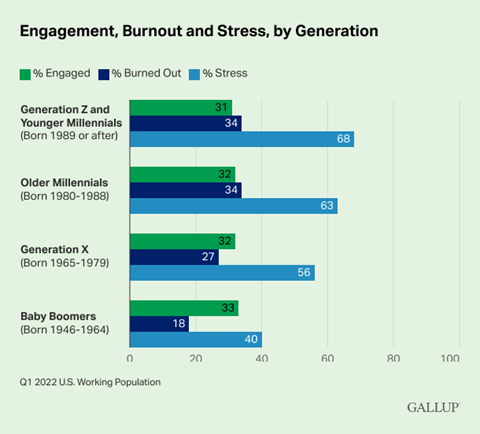
Business Trends
New data from Gallup reports that younger workers are overall more stressed and experiencing work-related burnout more than older generations.
“This should concern leaders. Stress and burnout influence job performance and long-term career growth. In addition, burnout is correlated with physical health risks and poor personal relationships. Employees who experience burnout a lot of the time are more likely to leave their job.”
When considering a new job, 65% of millennials say greater work-life balance and better personal wellbeing is “very important.” Their desire for work-life balance and wellbeing is almost as significant as their desire for an increase in pay or benefits.
Why This Matters
Young workers desire career growth as well as flexibility and independence. They’ve seen older workers experience burnout and want to avoid it for themselves.
However, many young workers don’t recognize their need for mentorship and coaching from peers and may not value learning how other departments of an organization run.
Simply insisting younger workers be in the office won’t guarantee developmental encounters and will likely create resentment, burnout, and turnover. Managers will be better off shaping experiences for their employees that will help set them up for long-term success.
Next Step
To learn more about what younger workers are seeking when they consider taking their next job, and how you can more effectively lead them, click here.
Photo by Canva.
